By Ankeeta Shah
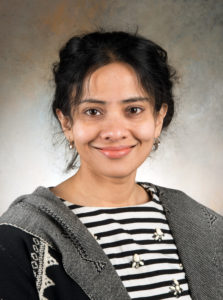
Anindita (Oni) Basu, Assistant Scientist at Argonne National Laboratory and Assistant Professor of Genetic Medicine at the University of Chicago, is far from what the average person pictures when imagining a scientist. This is because our perception of what a scientist should look like has been shaped by gender biases that are entrenched in popular culture and the media. Nevertheless, Oni and her female colleagues are gradually changing the status quo. They represent the diverse array of scientists who are building an equitable and fruitful environment for the next generation.
Oni is the type of scientist young research trainees should aspire to become because she is invested in diversifying science in terms of who can get involved and what skills and experiences they can bring to the table. Oni has “changed fields many times” but continues to “find ways to use old skills.” For example, with her extensive background in physics and genomics, she developed Drop-Seq, which is a technique that combines cutting-edge microfluidic droplet technology, massive molecular barcoding, and single-cell RNA-Seq, allowing her lab to categorize cell types in complex tissues.
Instrumental mentors from the beginning.
Oni moved from Kolkata to the United States for her undergraduate education at the University of Arkansas. Initially, she decided that she wanted to study computer engineering because it was the early 2000s and everyone she knew was doing computer engineering, especially her Indian peers. While she liked computer engineering, it was not something that really captured her imagination.
Eventually, Oni did find her true calling. During her second year of college, she was encouraged by the chair of the physics department to pursue physics because she seemed excited about it. Ultimately, she went on to conduct undergraduate research in physics and was certain that she was going to be in physics for the rest of her life. Oni gives credit to her instrumental mentors for their investment in her interests, claiming that “I am only here because of all the mentors I have had throughout my career.”
Find the right people, and fruitful science will follow.
Enamored by physics, Oni went on to pursue a Ph.D. in Soft Matter Physics at the University of Pennsylvania. During her postdoctoral fellowship at the Broad Institute, she was intrigued by microfluidic devices and wanted to study complex fluids. However, early on, she unintentionally dived into genomics.
Her PI at the time outlined a collaborative project in genomics that he suggested she consider participating in. Oni recalls, “It was not so much the project that I liked, but the people.” She described how the biologists she had spoken with and ultimately worked with had broken down the problem into “simple words that a physicist could understand.” She appreciates that the effort was truly collaborative — everyone brought their own skillsets, repurposing them for the task at hand. Now, genomics is the “gift that keeps on giving.”
Since Oni arrived at the University of Chicago in 2016, her interdisciplinary work has attracted a wide variety of individuals to her lab, all from different fields — genetics, chemistry, immunology, engineering, and biophysics. She appreciates her students, describing them as genuine, creative, and inquisitive. “It takes not only what their background is,” she remarks, “but also their interest going forward that makes them fit for a project.”
Forward-thinking science.
“Growing up in India, or even in undergrad, we never thought about these things,” Oni says when describing the systemic bias against women in science. “Suddenly, you see this, and you ask, where did that all come from? Was it always here? Was I just not paying attention?” She notes that “it gets harder as you go higher up.” Oni observed this in subtle ways — she was the only girl in her physics group. And she also saw it in more dramatic ways — she was appalled hearing the stories of women her age “shrink and cower,” when dealing with some conservative hiring committees in academia.
There is no defined solution to gender inequality in science, according to Oni, but “talking about it, being aware, and making other people aware definitely does help.” Oni devotes a lot her time to outreach efforts aimed at getting girls interested in science. For example, she is involved in the Science Careers in Search for Women in which she speaks with students, which she describes as “bright and precocious kids,” about her scientific career. She notes that over the years of mentoring high school and college girls she has seen that “a lot of women are losing interest in science in high school. In middle school, science is cool for everyone. Suddenly, there is a divide.” Therefore, in terms of outreach, she believes that high school-aged girls definitely need more attention.
“The women that came before us in science did a lot of work to get where they were and to allow us to get to where we are,” Oni says, “and we shouldn’t take that for granted.” By consciously going in for more managerial or committee duties and leadership positions, women can continue to have a say. Oni believes that “what the women before us have done that is important, and we cannot say that things are getting better now and sit back. It is not just that we will not progress, but we might regress.”

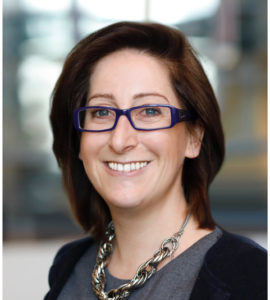

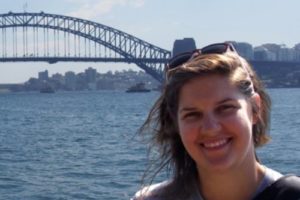 A great role model
A great role model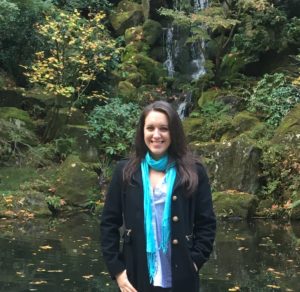 Dr. Rebecca (Becky) Toroney took to biochemistry during her undergraduate years at Franklin & Marshall College. While working under Prof. Ryan Mehl, she helped develop a novel method to increase protein stability using UV cross-linking by incorporation of photoreactive unnatural amino acids. Following undergraduate studies, she decided to pursue a Ph.D. in chemistry. In addition to her interest in all things scientific, Becky was encouraged to pursue graduate studies by a mentor at home. Her sister, Rachel, who at that time was attending graduate school at Johns Hopkins University, gave Becky the behind-the-scenes on what “graduate school entails”. The state-of-the-art research facilities were great but it was talking to her eventual thesis advisor and mentor, Phil Bevilacqua, that convinced Becky to join Penn State, “He was enthusiastic about his research, and encouraged me to work with him over the summer before I joined graduate school”. Even though her summer research project was focused on studying pKa shifting using NMR, Becky decided she wanted to be closer to molecular biology, and her thesis work was focused on the different structural features of RNAs responsible for regulating protein kinase PKR.
Dr. Rebecca (Becky) Toroney took to biochemistry during her undergraduate years at Franklin & Marshall College. While working under Prof. Ryan Mehl, she helped develop a novel method to increase protein stability using UV cross-linking by incorporation of photoreactive unnatural amino acids. Following undergraduate studies, she decided to pursue a Ph.D. in chemistry. In addition to her interest in all things scientific, Becky was encouraged to pursue graduate studies by a mentor at home. Her sister, Rachel, who at that time was attending graduate school at Johns Hopkins University, gave Becky the behind-the-scenes on what “graduate school entails”. The state-of-the-art research facilities were great but it was talking to her eventual thesis advisor and mentor, Phil Bevilacqua, that convinced Becky to join Penn State, “He was enthusiastic about his research, and encouraged me to work with him over the summer before I joined graduate school”. Even though her summer research project was focused on studying pKa shifting using NMR, Becky decided she wanted to be closer to molecular biology, and her thesis work was focused on the different structural features of RNAs responsible for regulating protein kinase PKR.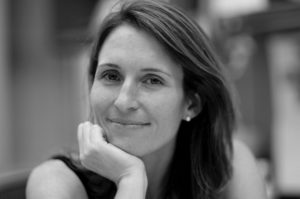 There are good scientific mentors. There are good professional life mentors. But good scientific mentors are not necessarily good career mentors. Those who are great at both deserve recognition. Dr. Erin Adams is quite the perfect example of someone who can offer great scientific advice and personal guidance. She is definitely someone I wish I had met earlier in my career. Dr. Adams is a fantastic mentor beyond the bench, the Joseph Regenstein Professor of Biochemistry and Molecular Biology, serves on the Committees on Immunology and, Cancer Biology at the University of Chicago. She is also a Principal Investigator of the myCHOICE program.
There are good scientific mentors. There are good professional life mentors. But good scientific mentors are not necessarily good career mentors. Those who are great at both deserve recognition. Dr. Erin Adams is quite the perfect example of someone who can offer great scientific advice and personal guidance. She is definitely someone I wish I had met earlier in my career. Dr. Adams is a fantastic mentor beyond the bench, the Joseph Regenstein Professor of Biochemistry and Molecular Biology, serves on the Committees on Immunology and, Cancer Biology at the University of Chicago. She is also a Principal Investigator of the myCHOICE program.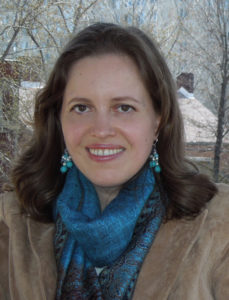 The first time I met Yulia was in 2015 when I visited Dr. Brian Popko’s laboratory to finalize my rotation. She smiled at me and said: “Whenever you have a question, you can come to me.” I thought her words were probably just a hint of her being a nice and polite senior postdoc in Dr. Popko’s laboratory. However, it turned out she really meant it. Since 2015, Yulia has become my role model, my best lab mate, and best friend. She is one of the few people I met who refresh my mind to look and experience the world differently.
The first time I met Yulia was in 2015 when I visited Dr. Brian Popko’s laboratory to finalize my rotation. She smiled at me and said: “Whenever you have a question, you can come to me.” I thought her words were probably just a hint of her being a nice and polite senior postdoc in Dr. Popko’s laboratory. However, it turned out she really meant it. Since 2015, Yulia has become my role model, my best lab mate, and best friend. She is one of the few people I met who refresh my mind to look and experience the world differently.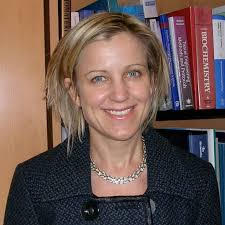 I confess that writing about Melody Swartz is a somewhat intimidating task. The world sees her as an Arnold and Mabel Beckman Young Investigator Award recipient, a winner of the National Science Foundation Early Career Award, and one of the Brilliant 10 named by Popular Science in 2006. There have already been numerous articles written about her; I was concerned that I would be rehashing another one of these articles that herald her many accomplishments. Nevertheless, I have the desire to do her achievements and even more so, the personal side of her story justice.
I confess that writing about Melody Swartz is a somewhat intimidating task. The world sees her as an Arnold and Mabel Beckman Young Investigator Award recipient, a winner of the National Science Foundation Early Career Award, and one of the Brilliant 10 named by Popular Science in 2006. There have already been numerous articles written about her; I was concerned that I would be rehashing another one of these articles that herald her many accomplishments. Nevertheless, I have the desire to do her achievements and even more so, the personal side of her story justice.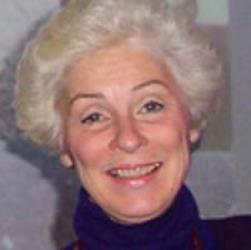 Dr. Nancy Schwartz often sits quietly, listening to scientists of all levels as though she is no different from the others in the room. Humility, a characteristic often attributed to womanhood, is partially why she is so successful. She listens, processes information, thinks about what to say so no word is left unweighted. She does not need to command respect with a loud voice and broad shoulders, she does it naturally and with a dash of class.
Dr. Nancy Schwartz often sits quietly, listening to scientists of all levels as though she is no different from the others in the room. Humility, a characteristic often attributed to womanhood, is partially why she is so successful. She listens, processes information, thinks about what to say so no word is left unweighted. She does not need to command respect with a loud voice and broad shoulders, she does it naturally and with a dash of class.